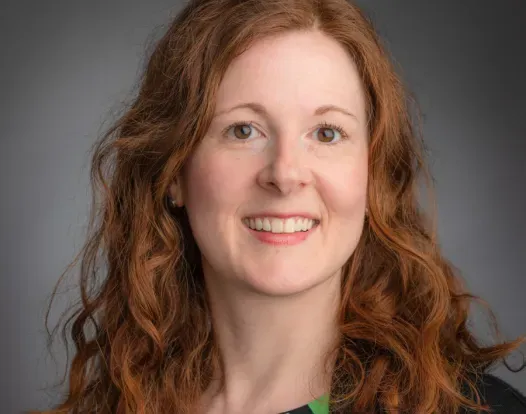These researchers have dedicated their careers to finding new treatments and cures for people with cancer.


There is a great need for new, more effective therapies for patients with Richter’s syndrome (RS), which is the transformation of the indolent B-cell malignancy chronic lymphocytic leukemia (CLL) to an aggressive lymphoma.
In recent years, several new, highly effective targeted medications have been approved for CLL, leading to improved outcomes for patients. In contrast, RS often does not respond to existing therapies, and the genetic drivers and molecular changes that occur with transformation remain poorly understood.
In 2020, Dr. Parry, of the Dana-Farber Cancer Institute, received the Dr. Jose Leis Endowed YIA from Conquer Cancer, the ASCO Foundation. The award is funded by Georgia and Mike Michelson. Dr. Parry is working to identify the basic genetic changes and molecular pathways that cause transformation to improve understanding of this aggressive malignancy.
What is the latest update on your YIA research?
EP: We have collected paired CLL and RS samples from 52 patients with RS through multicenter collaboration and have performed whole exome sequencing to identify the genetic changes that occur with transformation. Using new technologies that allow us to study single cells, we can also trace the transition from CLL to RS to identify the cellular programs that change with transformation. I am in the process of writing a manuscript for submission with my co-authors to share our findings.
How will your research project help patients?
EP: There is a need to have markers that can aid in initial diagnosis, and even inform therapy selection. It is my hope that this research project will help provide a genetic framework that can be used to improve RS diagnosis. Through identifying pathways altered in RS, I hope that this may also inspire future clinical trial investigation.
What’s next in your research plans?
EP: I plan to complete my YIA project and publish and present these findings. By examining additional RS samples, I plan to continue to expand upon this work to try to identify additional drivers of transformation. Furthermore, I will begin to study the functional impact of the identified genetic changes in the laboratory so we can advance understanding of how these genetic alterations contribute to transformation and disease biology.
What challenges have arisen in your work because of the pandemic?
EP: The initial COVID-19 surge temporarily shut down bench laboratory research and impacted clinical research. However, research did continue despite this initial setback. The pandemic has certainly changed the way research is conducted and shared with the scientific community. Many of our day-to-day research meetings, as well as our clinical and scientific conferences, are now virtual.
What is the greatest need in cancer research right now?
EP: I think there is now a need to understand determinants of response and resistance to therapies. There is also a need to identify prognostic markers so that we can better predict responses and select the best therapy for each patient. I think there are also still many cancer types where there is a need for new therapies and where fundamental gaps in knowledge exist, such as the transformation to aggressive lymphoma.
How vital are donors in helping to bring cancer research discoveries to patients?
EP: The support of donors is critical to support ongoing research efforts in translational and clinical research. The YIA helps support young physician-scientists, like me, who are interested in bringing discoveries to the clinic. With the additional challenges imposed by the pandemic, this support is more critical than ever to grant protected research time and allow physician-investigators to develop careers focused on advancing cancer research with high relevance to patients.